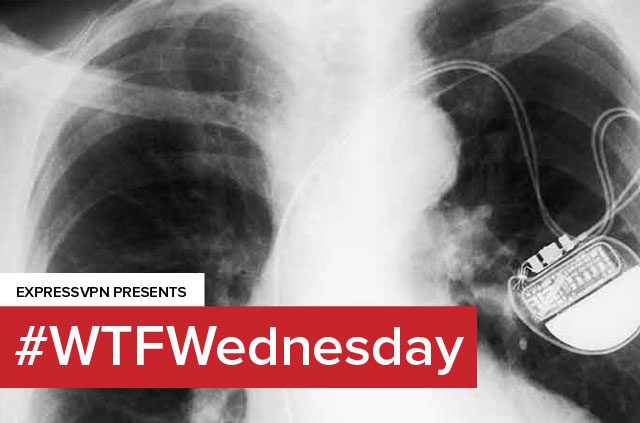
Remember that scene in Terminator 2 where Arnold rips open his flesh and exposes his gnarly cybernetic hand? After the first successful robotic arm transplant last month, we’re one step closer to making bionic body parts like that a reality.
But what happens when we start replacing our old, dilapidated organs with cybernetic analogs? Sure, you’ll be able to run faster, jump higher, and live longer, but what about the risks?
A group of students at the University of South Alabama set out to answer that question by attempting to hack someone’s wireless pacemaker.
Guess what? It’s totally possible.
iStan Is Was the Man
The pacemaker in question belonged to iStan, aka “the most advanced wireless patient simulator on the market.” This creepy-looking robot (shown below) cost $100,000 U.S. and is used in hospitals to help medical students practice various life-threatening procedures.
Although it looks like a demented puppet straight out of Child’s Play, it’s about as close to a living human there is, and last week he was murdered in cold, artificial blood..
It Was So Easy
The students were taking a class in cybersecurity and were tasked with hacking into iStan’s control system via Wi-Fi.
Within a few hours they realized they were able to access iStan’s pacemaker through a variety of different ways, including Denial of Service (DoS) attacks, security control attacks, and brute force attacks to iStan’s Wi-Fi.
Mike Jacobs, director of simulations at the University of South Alabama and ringleader of the attack, had some choice words in a recent Motherboard article:
“The simulator had a pacemaker so we could speed the heart rate up, we could slow it down. If it was the intent, we could definitely cause harm to the patient."
But that’s just the beginning.
“It's not just a pacemaker,” says Jacobs. “We could do it with an insulin pump…a number of things that would cause life-threatening injuries or death.”
A Wake-Up Call for Future Procedures
It’s fair to say any Internet-connected device is vulnerable to attack. We’ve seen how hackers can hack your watch, your car, and even your home. But now it seems they can also hack YOU.
Today it’s your pacemaker. Tomorrow it may be your cybernetic kidney. What’s next? The tiny microchip in your brain?
As medical advancements lean more towards wireless connectivity, a new and terrifying avenue for cyber-attack is budding into reality.
Sound the Alarm
"We did this because we were wanting to beef up security on our end and put some safeguards in place,” says Jacob. “It may not be totally possible to prevent hackers, but, knowing these can easily be hacked increases your awareness of vulnerabilities.”
While it may not be time to panic (yet), it’s worth stressing to manufacturers and future developers the importance of safeguards. So when the time does come, and it likely will, maybe your bionic organs won’t try to kill you.
The full report can be found here.
Featured image: Dario Sabljak / Dollar Photo Club
Take the first step to protect yourself online. Try ExpressVPN risk-free.
Get ExpressVPN





